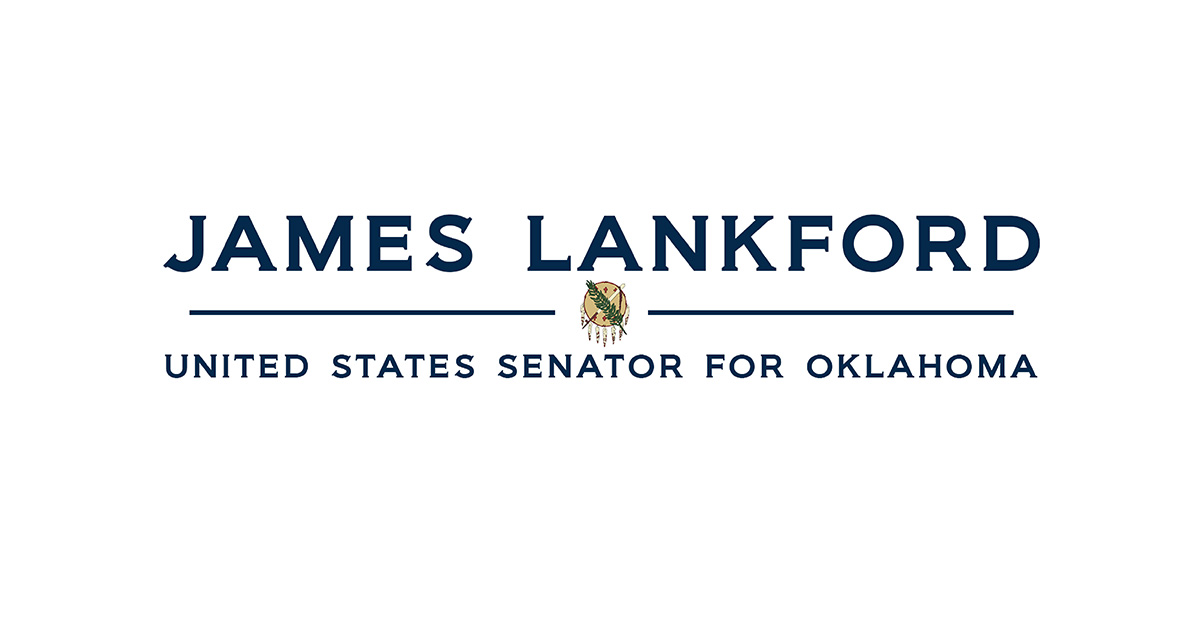Source: United States Senator for Oklahoma James Lankford
01.31.22
WASHINGTON, DC – Senators James Lankford (R-OK) and Shelley Moore Capito (R-WV), along with several of their colleagues sent a letter to US Environmental Protection Agency (EPA) Administrator Michael Regan. The letter asks EPA to reconsider its proposed blanket denial of small refinery exemptions (SRE) under the Renewable Fuel Standard (RFS) program as this runs counter to congressional intent under the Clean Air Act.
“We are puzzled by the action EPA took in these proposals, including the unprecedented and drastic step to propose a blanket denial of all 65 outstanding small refinery hardship petitions at a time of increasing gasoline prices and several small refinery closures around the nation,” the senators wrote. “The current proposal neglects not only its own economic impacts, but negates the intent of Congress in deliberately amending the Clean Air Act to allow for exemptions for small refiners that suffer disproportionate economic hardship from compliance with the RFS.”
Lankford and Capito were joined by their colleagues, Senators John Barrasso (R-WY), Jim Inhofe (R-OK), Mike Crapo (R-ID), Roger Wicker (R-MS), Jim Risch (R-ID), Pat Toomey (R-PA), Ted Cruz (R-TX), Bill Cassidy (R-LA), Steve Daines (R-MT), John Kennedy (R-LA), Cindy Hyde-Smith (R-MS), Cynthia Lummis (R-WY), and Bill Hagerty (R-TN).
Read the full letter HERE and below:
Dear Administrator Regan:
We are deeply concerned by the US Environmental Protection Agency’s (EPA) proposed actions under the Renewable Fuel Standard (RFS) program through the RFS Annual Rules and the Proposed RFS Small Refinery Exemption Decision. Proposing to summarily deny all 65 pending small refinery exemptions, which provide critical relief to small refineries experiencing financial hardships imposed by the RFS mandate, runs counter to congressional intent under the Clean Air Act.1 Additionally, the Agency’s proposal for all-time high Renewable Volume Obligations (RVO) for 2022 does not reflect market realities and is likely to further raise costs for refiners – especially small and independent refiners – and therefore American consumers and the economy.2
We are puzzled by the action EPA took in these proposals, including the unprecedented and drastic step to propose a blanket denial of all 65 outstanding small refinery hardship petitions at a time of increasing gasoline prices and several small refinery closures around the nation. The current proposal neglects not only its own economic impacts, but negates the intent of Congress in deliberately amending the Clean Air Act to allow for exemptions for small refiners that suffer disproportionate economic hardship from compliance with the RFS.
Since the establishment of the RFS, small refineries have maintained the ability under Clean Air Action Section 211(o)(9)(B) to petition EPA for an exemption from their RFS obligations through a small refinery exemption.3 In 2011, the Secretary of Energy conducted a study required under the Clean Air Act to determine whether compliance with the program would impose disproportionate economic hardship on small refineries.4 This report found that 13 of the 18 small refineries examined in the report faced disproportionate economic hardship, characterized by increased cost of compliance to the point that the current or future viability of the refinery was impacted.
By proposing to deny all pending petitions, EPA is contravening congressional intent that the Agency allow for small refinery exemptions. This proposal is especially striking given recent federal court rulings, including a Supreme Court case, a case in the Tenth Circuit Court of Appeals, and two cases in the Fourth Circuit Court of Appeals that have favored small refiner petitioners.5 Ultimately, this proposal will lead to more litigation and increased uncertainty under the RFS.
That is particularly likely given the decision to significantly increase the RVO for 2022, and therefore likely baking in elevated blending mandates for years to come. By raising the RVO and foreclosing the possibility of hardship relief for small refineries, the EPA will make compliance more difficult, Renewable Identification Number (RIN) credits more expensive, and the financial hardships for small refiners even more extreme.
With that in mind, we urge EPA to reconsider this effort to deny all 65 outstanding small refinery petitions and the proposal to set the RVO at unprecedented levels for 2022. Reconsidering these actions will provide much-needed relief and certainty for companies, employees, and communities across the country; bolster access to affordable, domestically-produced fuels for American consumers; and remove obstacles for an economy already facing significant challenges from inflation and other supply chain challenges. The federal government does not need to raise additional hurdles through the RFS. EPA should therefore fundamentally reevaluate its decisions on the outstanding small refinery petitions and its 2022 RVO before finalizing these proposals.
Sincerely,
